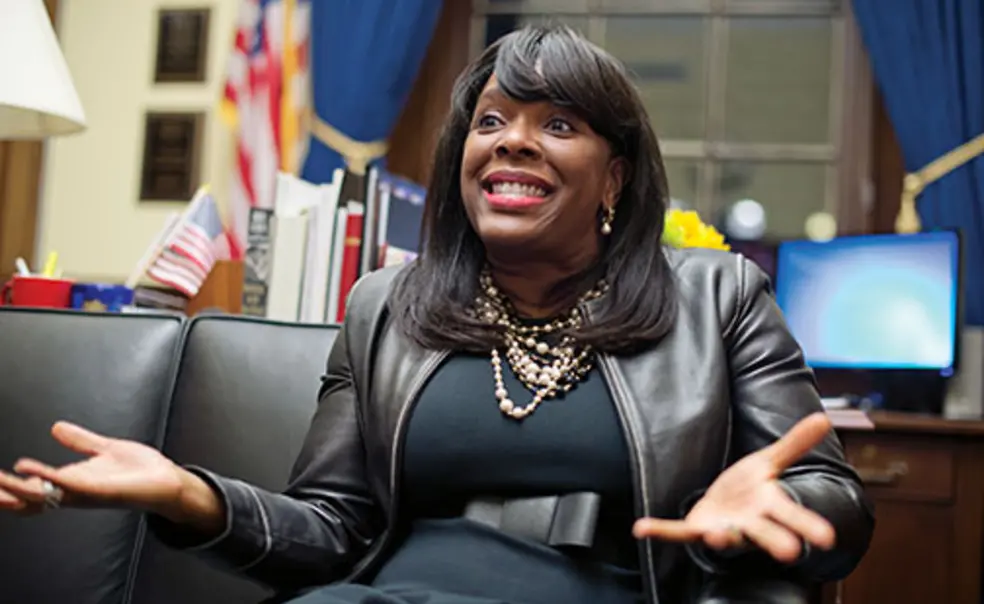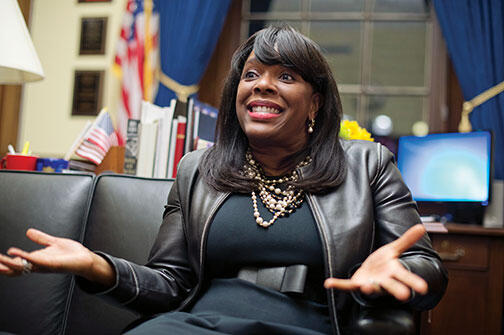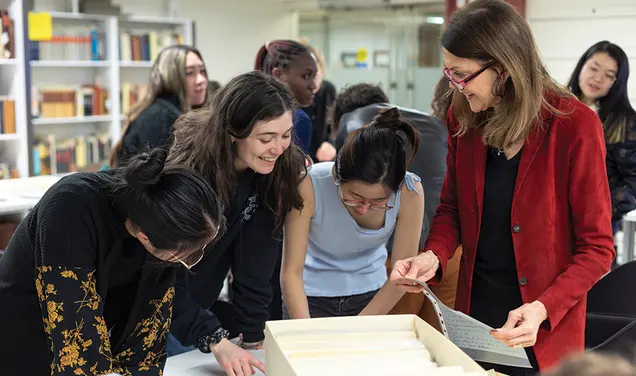Q&A: Rep. Terri Sewell '86 on the Legacy of Selma
The release of the film Selma, which tells the story of the 1965 civil-rights march from Selma, Ala., to Montgomery led by Martin Luther King Jr., has brought the spotlight to Rep. Terri Sewell ’86’s hometown. Sewell was the first African American valedictorian at Selma High School and, after a two-decade career as a lawyer, was elected to Congress in 2010, becoming the first African American woman to represent Alabama. As the Democrat starts her third term in office, she talked to PAW about her hometown and the challenges it now faces.
How has Selma changed since you grew up there?
Politically, the city has progressed to the point where we are on our second black mayor. But economically, the city has suffered because we lost Craig Air Force Base [in 1977] and, with it, lots of jobs.
The high school I graduated from was fully integrated by the time I got there in the ’80s. I was told by black and white teachers that I was smart and that I could be anything I wanted to be. Flash forward 30 years, and Selma High is now 98 percent black. We’ve seen a re-segregation. I don’t know if my old high school could produce me anymore.
What did you think of the film Selma?
I’ve seen it five times! House members John Lewis, Kevin McCarthy, Martha Roby, and I offered a bipartisan screening for members of Congress. It was well attended by both Democrats and Republicans. I thought it was a long time due for Selma to get its proper recognition as the center of America’s voting-rights movement. The director’s emphasis on the role of women such as Coretta Scott King was particularly well done.
Your family opened its land to the marchers?
My great-great-grandfather was a sharecropper and worked hard enough to buy land along Route 80. My grandfather, a Baptist preacher who still owned that land, was very, very proud of the fact that he was able to offer refuge for the marchers during the final march.
President Barack Obama was scheduled to visit Selma March 7 for a commemoration of the 50th anniversary of the Bloody Sunday march.
Yes. He came to Selma in 2007, when he was running for president, and visited my home church. I happened to be there that day because I am an usher in the church. He talked about our generation’s obligation to build on the work of King and others. He asked us what we would do to pass on the legacy and to further the progress. I decided that if my predecessor gave up his seat in Congress, I would go after it.
You recently co-sponsored legislation to honor those who participated in the march.
I think it’s important that we never forget what took place in Selma. As a lifetime member of Brown AME Chapel — the church where the marchers set out from to walk across the bridge on that Bloody Sunday — I am acutely aware of protecting the legacy of those brave men and women who fought for the right to vote.
The movie has started a national dialogue about modern-day barriers to voting, and has caused people to recommit themselves to the ideals those marchers were marching for, which were equality, justice, and the right to vote. I think that more of this generation needs to understand the struggle.
Interview conducted and condensed by Merrell Noden ’78
Names in the News: Sewell ’86 on Selma Today, Touring China with Hessler ’92, and More











No responses yet